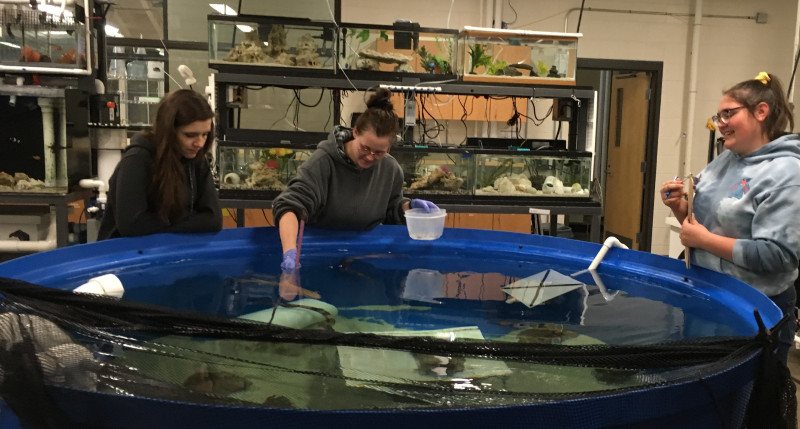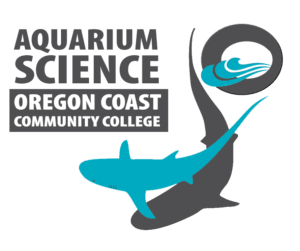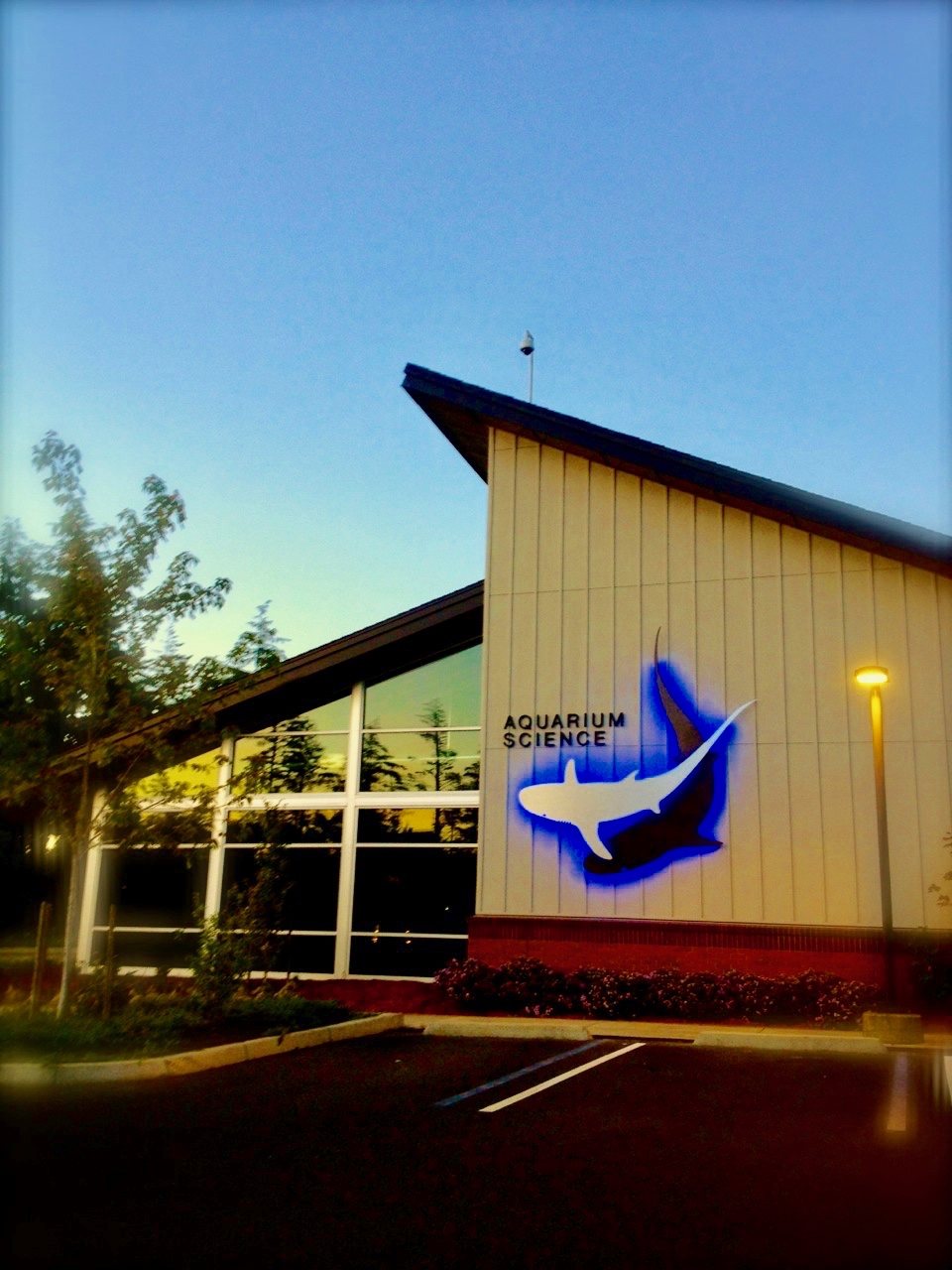Careers in an Aquarium
Fairly often in the course of a working day as an online coral frag retailer, we are asked how we got started in this industry. For us, it’s very easy to understand why some people are interested in the work. It’s usually a combination of same things that intrigued and inspired us to take our lives in this direction, such as:
- The desire to working with vibrant, beautiful and interesting aquatic animals
- An interest in expanding the technical skills they’ve acquired as hobbyists
- The prospect of working in a public aquarium or similar facility
- A passion for sharing their knowledge with people from all over the world via formal presentations and informal conversations
- The inspiration to take their life in a new and challenging direction

Positions within a Professional Aquarium
For people who love animals and aspire to work with them, here are a few of the more common jobs in a public aquarium:
- Aquarist – Aquarists are responsible for all aspects of care for their fish and invertebrates, including feeding, cleaning, health management, water chemistry testing and analysis, training, exhibit maintenance, interpreting their animals and their behaviors to guests, and other parts of the job including documentation and ongoing career development. Traditionally, aquarists are longtime volunteers that have earned their way to this position but recently, many aspiring aquarists are learning the advantages of gaining employment by earning an Aquarium Science degree from Oregon Coast Community College (OCCC.)
- Life Support Operator – Life support operators work completely behind the scenes designing and building life support systems, installing, maintaining and updating life support components on systems, and generally working to make sure that everything runs smoothly. Candidates for these positions usually have strong technical backgrounds and an aptitude for plumbing, electrical work, construction and mechanics.
- Mammalogist – Mammalogists provide the day-to-day care for seals, sea lions, otters, dolphins and other aquatic mammals, including feeding and cleaning with a strong emphasis on training and interpretation through public speaking. In order to be competitive, mammalogists have to have a college degree with a strong emphasis on psychology, as training in operant conditioning is an essential aspect of mammal care and health management.
- Aviculturalist – Aviculturalists provide all aspects of care for a wide range of aquatic and non-aquatic birds such as feeding, cleaning, and health management, along with lots of training and interpretation through daily programs, where they share interesting aspects of the birds in the facility’s collection. Strong public speaking skills are often key to employment opportunities, as an aviculturalist may have to do four or more presentations in the course of a workday.
Other Employment Opportunities for Aquarists
Many folks begin their path to working with aquatic animals by daydreaming about working in a public aquarium (this absolutely applied to us, as well.) However, once you have begun a technical aquarium science education, you quickly realize that there are many more paths you can take to apply your skills and knowledge. Here are a few of the more common alternatives to consider:
- Fish Hatcheries – Fish hatcheries can be owned and operated by state and federal agencies or private businesspeople and these jobs are often well-paying but not for the faint of heart. These folks typically work outside in all kinds of conditions feeding animals and cleaning their holding systems, along with separating genders, harvesting their gametes and hatching out and caring for the fry that will become the next generation.
- Zebrafish Research Labs – Scientists are increasingly using zebrafish and other fish species for medical research, toxicology, and many other aspects of scientific research, as these fishes have mapped genomes, are fairly inexpensive to work with and have fewer laws and regulations governing their use than mammals. Aquarists seeking these positions have to have very good work habits and a discriminating eye for detail, as the animals under their care provide data that the researchers need to do their work.
- Retail and Wholesale Facilities – Many people get their first experience working with aquatic animals at a local pet store or a large wholesale facility that sells animals to pet stores. These jobs require lots of feeding, cleaning, system maintenance, and strong customer service skills, as they are working directly with the public. In many cases, people in these jobs got their start as hobbyists and were recruited by the shop owner to join their staff. After doing the job for a year or more, many of these workers take their skills to the next level by pursuing an Aquarium Science degree.
- Aquaculture Facilities – These facilities specialize in breeding and raising aquatic plants or animals for food or to supply pet stores with fish and invertebrates. These aquarists have to be well versed in all aspects of aquatic animal care with an emphasis on reproduction, nutrition and larval fish and invertebrate husbandry, along with culturing the foods these animals need to grow and thrive. They may work in an exotic tropical location or an aquaculture facility in the South or in a nondescript warehouse in some industrial park somewhere.
- Koi Pond Maintenance – Koi pond maintenance is a small but potentially lucrative niche for aquarists who have the skills and technical expertise to design, build and maintain koi ponds in back yards, office building lobbies and in some homes. They also have to have very good animal husbandry and health management skills along with strong water chemistry and life support troubleshooting skills, as many koi enthusiasts pay thousands of dollars for each animal in their collection and thousands more for their pond and filtration equipment.
- Aquarium Maintenance Service – Typically, people who work in these jobs got their start working in fish stores that also provide aquarium cleaning service for clients in private homes, businesses, assisted living facilities, dentists’ offices, and other locations. However, given the wide range of different types of life support systems, animals and troubleshooting skills required to be successful in their field, we strongly recommend that people who want to start their own aquarium service company pursue and receive a much more comprehensive technical education by enrolling in an aquarium science program. Only then will they get a thorough education in aquarium science, which will truly set them up for success in a field where their clients expect them to be able to do pretty much everything.
How to get the Training to be Successful, Employable and Marketable in these Career Paths
 As we have mentioned a few times, we strongly recommend that if you are interested in any or all of these aquatic animal career options, you consider enrolling in the Aquarium Science (AQS) Program at OCCC. Jordan Fry, our owner and lead coral health and propagation professional, is a graduate of this program and his success as one of the industry’s premier online coral sellers is due to his work ethic and the technical education he received in this program. This program is well known and widely respected throughout the professional aquarium industry, as curators, senior aquarists and other hiring managers know that graduates of this program are very well-rounded, with lots of hands-on technical training. Further, these students are taught and mentored by professional aquarists with many years of experience in the fields listed above.
As we have mentioned a few times, we strongly recommend that if you are interested in any or all of these aquatic animal career options, you consider enrolling in the Aquarium Science (AQS) Program at OCCC. Jordan Fry, our owner and lead coral health and propagation professional, is a graduate of this program and his success as one of the industry’s premier online coral sellers is due to his work ethic and the technical education he received in this program. This program is well known and widely respected throughout the professional aquarium industry, as curators, senior aquarists and other hiring managers know that graduates of this program are very well-rounded, with lots of hands-on technical training. Further, these students are taught and mentored by professional aquarists with many years of experience in the fields listed above.

The Curriculum of the AQS Program at Oregon Coast Community College
This Program offers two paths:
- A one-year AQS certificate – Students who have already earned a Bachelor of Science degree can choose this route of AQS-centric classes and an internship to receive their Certificate. In addition to their work in the classroom, Certificate students are also assigned to various life support systems and animals so they can apply what they are learning on a daily basis.
- A two-year Associate’s Degree in Aquarium Science – Students who choose this path take a variety of general education classes, as well as AQS-specific classes. Much of their first year is spent finishing their gen. ed. coursework but they also get to work with a variety of life support systems and animals in the Program’s Teaching Aquarium during their first year. Students who have had some gen. ed. courses at other colleges can apply them toward their AQS degree and finish their Associate’s in one year using the Certificate curriculum map. Students who work full-time in addition to attending college may be able to earn their degree over a longer period of time, depending on the specifics of their situation and their performance in the Program.
Examples of AQS classes offered in the Program include:
- AQS100 Introduction to Aquarium Science
- AQS215 Biology of Captive Fishes
- AQS216 Elasmobranch Husbandry
- AQS220 Biology of Captive Invertebrates
- AQS232 Reproduction and Nutrition of Aquatic Animals
- AQS240 Life Support Design and Operation
- AQS245 Aquatic Animal Husbandry in a Research Facility
- AQS252 Exhibits and Interpretation
- AQS270 Fish and Invertebrate Health Management
Click here for a complete list of Aquarium Science courses and their descriptions.
The AQS Teaching Aquarium at OCCC
This purpose-built teaching facility is unlike any other facility in the world: a building designed and built specifically to teach Aquarium Science. In these classrooms and lab spaces, students learn the various aspects of aquatic animal care, life support system maintenance, troubleshooting, water chemistry testing and how to properly interpret the results, food preparation, how to implement health management in the facility’s Hospital/Quarantine area, and many other aspects of their technical education as aquarists. Students are assigned to various life support systems over the course of their education and work closely with professional aquarists who are as skilled at teaching as they are at aquatic animal husbandry. The Teaching Aquarium also offers students opportunities to work on special projects that interest them, if they are serious about taking on the responsibilities of these projects.
Important Learning Opportunities Outside Campus
In addition to the Teaching Aquarium, students can also apply what they are learning at nearby facilities through volunteering, practicums, and internships and there are many options within easy walking, biking or driving distance. Approximately a half-mile from campus is Oregon Coast Aquarium, a very well respected public aquarium, which actively supports the Program and AQS students. Students can pursue opportunities to work with fishes, invertebrates, birds, mammals and other departments.
A quarter-mile from the Aquarium is Hatfield Marine Science Center, a world-class marine science facility, which also offers ambitious AQS students an opportunity to volunteer and perform practicums and internships in labs operated by Oregon State University, Oregon Sea Grant, the Environmental Protection Agency, NOAA, the Oregon Dep’t of Fish and Wildlife, and other agencies.
Students who are interested in working at hatcheries will find several options within easy driving distance, along with a hatchery research facility. Most of these facilities have been working with the Program and students for years and offer students opportunities to volunteer, perform a practicum or internship or all three.
Suffice it to say that if you’re interested in becoming a professional aquarist, there’s no better place in the world than the Oregon Coast to gain the technical knowledge and hands-on training you will need to be successful no matter which direction you choose after completing your studies. The AQS Program has a national and international reputation for graduating aquarists with very marketable skills for entry-level or better positions in many different industries and they can pursue opportunities all over the world. If you’re interested in working with aquatic animals and life support systems, your success begins here.
